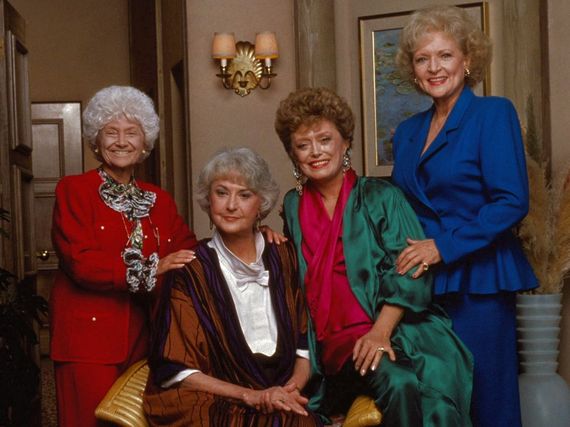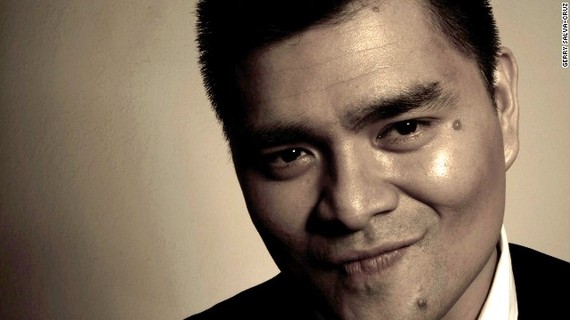Golden Girls: Growing Old, Growing Up and Growing Asian American
Today marks the 30th anniversary of the debut of The Golden Girls on NBC. From modest beginnings, the show would become a huge success, garnering top ratings for NBC and accolades for the show, its cast and crew. But more importantly, from a cultural perspective, it has had a much larger impact. As the first network broadcast show to focus on older women, The Golden Girls changed the way we looked at them and broke many stereotypes. From water cooler chatter to professionally refereed academic journals, much has been made of what their groundbreaking portrayals mean for how we understand women and aging.
The Golden Girls, both the four women and the show named for them, did not operate in a vacuum. As women with families, jobs, lovers and friends living in a multicultural community in Miami, FL, they had a number of complicated experiences while living together with the resultant highs and lows that made their lives fun to watch. The show, by examining their reactions to a wide range of topics — from sex, to interracial relationships, to disability visibility, broached a number of topics that had been considered off limits for mainstream networks at the time and challenged previously entrenched notions of what was successful television. Tracey Ross, Center for American Progress Fellow, calls The Golden Girls, “the most progressive show on television,” thirty years out.
I was an avid fan of The Golden Girls while it was on the air. As a young Filipino American entering his teen years at the time, perhaps the larger implications of what the show meant escaped me. I found myself agreeing with the show’s messages about how people should respect difference — whether by age or by race or by any other community. My upbringing in a Filipino family taught me to respect my elders and so even though these white women were very different than my lolas (grandmothers), I knew that they deserved my respect, which they earned regardless through the strength they showed. As an Asian American outside the “black or white” dichotomy through which race was discussed even for a progressive show like The Golden Girls, I knew that someone’s skin color shouldn’t determine how I felt about them. Their positive messages about the gay men and lesbians in their lives spoke to me as I grappled with my own feelings and coming out process. Whether I knew it or not, who I was becoming as a young gay man of color, was keeping time with how these four women were becoming who they were.
I know I am not the only one who has been influenced by The Golden Girls. Their impact, on Asian Americans interestingly enough, shows how media messages can be received in many different ways. My friend, Jose Antonio Vargas, whose story as perhaps the most famous undocumented immigrant in the United States thanks to his “coming out” in 2011 and founding of the “Define American” project and most recently, #EmergeUS (a project with the Los Angeles Times), talks about how The Golden Girls helped teach him English, and undoubtedly, how to “be” American. Ai-Jen Poo, 2014 MacArthur Fellow, talks about The Golden Girls in her book “Aging with Dignity.” She writes, “Probably the single most effective product to come out of Hollywood in terms of turning around the cultural stereotypes about older women was the hugely popular and successful television show The Golden Girls in the late 1980s and early 1990s.”
Ai-Jen, Jose and myself are probably not indicative of the entire Asian American community. As advocates, writers and policy wonks who work on issues such as aging, workers’ rights’ and immigration, our viewpoints reflect our own perspectives. But if The Golden Girls have taught us anything, it’s to walk our own path. Perhaps at that party their opening theme song sings about, this lesson is their biggest gift.
So, to The Golden Girls, at the ripe young age of 30, I still say, “Thank you for being a friend.”
— This feed and its contents are the property of The Huffington Post, and use is subject to our terms. It may be used for personal consumption, but may not be distributed on a website.
You Might Like


